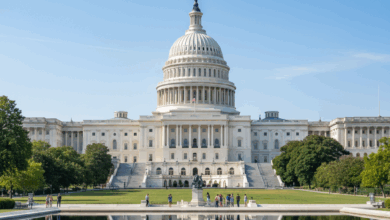How Will Hong Kong’s New Stablecoin Rules Impact the US and Global Crypto Markets?

Hong Kong is set to enforce new stablecoin regulations starting this Friday, marking a significant step in the city’s effort to regulate digital assets. These rules aim to enhance investor protection, promote market integrity, and position Hong Kong as a global leader in regulated blockchain finance. This article explores the key aspects of the legislation and its implications for the US and worldwide crypto markets.
Overview of Hong Kong’s Stablecoin Licensing Framework
The Stablecoins Bill, effective this Friday, mandates that all stablecoin issuers obtain a license from the Hong Kong Monetary Authority (HKMA). The HKMA is also empowered to revoke or suspend licenses if issuers fail to comply with regulatory standards.
The rules arrive amid heightened global attention to stablecoins, fueled in part by U.S. President Donald Trump’s push to accelerate the growth of dollar‑pegged tokens. The new legislation covers the issuance, sales, and marketing of stablecoins pegged to the Hong Kong dollar (HKD).
A vital feature of the bill is the distinction between retail and professional investors:
- Only licensed stablecoin issuers may offer tokens to retail investors.
- Unlicensed issuers can only provide stablecoins to professional investors.
This distinction is designed to reduce risks for retail investors while allowing professional investors broader market access. Licensed entities are required to display their license number publicly and promptly report any significant changes. Failure to adhere to these requirements carries criminal penalties.
Balancing Growth and Risk Management
Hong Kong’s regulatory overhaul strikes a careful balance between mitigating systemic risks and fostering growth in the digital asset ecosystem. By introducing eligibility criteria for licensing and clearly defining the scope of activities, the bill strengthens Hong Kong’s position as a global hub for virtual asset liquidity and blockchain innovation.
Global Market Context and US Connections
US Treasury Secretary Scott Bessent predicts the stablecoin market will grow tenfold over the next few years—from $200 billion to $2 trillion—underscoring the urgency of regulatory clarity.
Hong Kong’s stablecoin licensing framework aligns with this global growth, providing a sound regulatory environment that could influence policies in the US and other major markets. This is particularly relevant as US regulators continue to debate frameworks for digital assets and stablecoins.
Most institutions in talks with the HKMA are exploring stablecoins pegged to the HKD and USD. Chan also noted that any stablecoins backed by offshore yuan will need to clearly define their use cases and detail the reserve assets backing them.
Addressing Cryptocurrency Risks and Investor Protection
While stablecoins and cryptocurrencies offer new investment opportunities, their high volatility and associated risks remain a concern. Bitcoin, for example, has exhibited volatility nearly four times greater than major stock indices since 2020. Fraud, security breaches, and market manipulation have also drawn regulatory attention.
Hong Kong’s Securities and Futures Commission (SFC) has long prioritized investor protection, market integrity, and risk management through a robust virtual asset regulatory regime. The Stablecoins Bill complements these efforts by providing specific guidelines for stablecoin issuance and custody.
Legal Recognition and Arbitration of Crypto Assets
Hong Kong courts have made strides in legally recognizing cryptocurrencies as property. The 2023 Re Gatecoin Limited ruling confirmed that crypto assets enjoy traditional property protections, such as preservation orders and inclusion in insolvency distributions. This legal clarity bolsters investor confidence and reinforces enforcement capabilities.
Moreover, the Hong Kong International Arbitration Centre has seen a rise in crypto-related disputes covering areas like:
- Contractual disagreements with crypto platforms
- Intellectual property issues concerning NFTs
- Technical conflicts over decentralized finance (DeFi) protocols and smart contracts
Implications for the Future of Stablecoins and Digital Finance
As Hong Kong enforces its new stablecoin rules, the city is expected to set a global standard for digital asset regulation. These regulations will impact not only the local market but also US crypto policy and the broader blockchain finance ecosystem.
Market participants, regulators, and investors worldwide will be closely watching how these rules influence the growth, safety, and adoption of stablecoins and programmable finance solutions.





